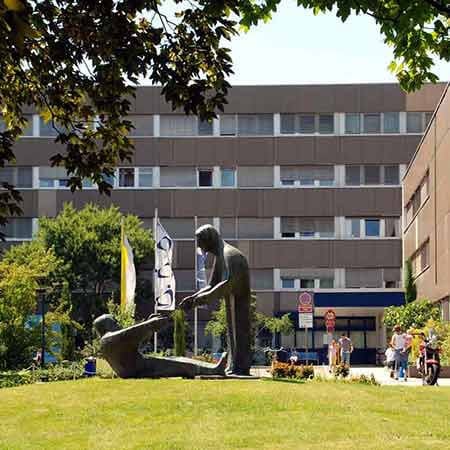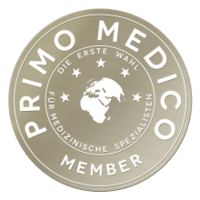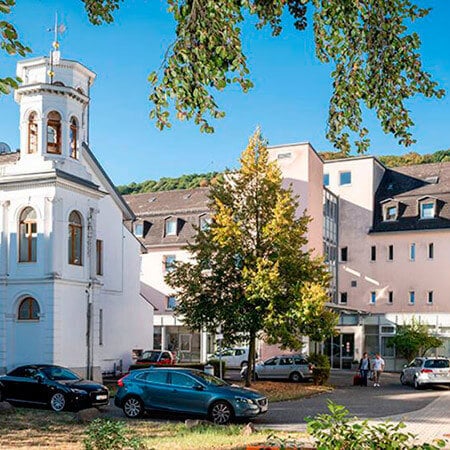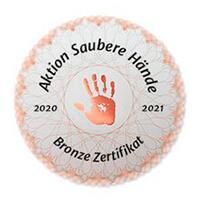Nephroblastoma (Wilms Tumor) — Chemotherapy: treatment in the Best Hospitals in the World
Treatment prices are regulated by national law of the corresponding countries, but can also include additional hospital coefficients. In order to receive the individual cost calculation, please send us the request and medical records.

Department of Hematology and Oncology
The Department of Hematology and Oncology treats solid malignant tumors of various localizations, blood cancer, and benign hematopoietic pathologies. A qualified team consisting of oncologists, hematologists, psycho-oncologists, physiotherapists, and experienced nursing staff takes care of the health of patients. Whenever required, doctors from related medical fields are also involved in the therapeutic process. All specialists make every effort to provide patients with effective and personalized medical services while surrounding them with care. The department is part of the Cancer Center of the hospital, which is certified according to the requirements of the German Cancer Society (DKG). The department prefers a multidisciplinary approach, holding weekly tumor boards with the participation of oncologists, hematologists, radiation therapists, and surgeons, as well as highly specialized experts in gynecology, urology, gastroenterology, pulmonology, etc. The department's specialists have in their arsenal modern treatment methods for malignant diseases, including chemotherapy, targeted therapy, immunotherapy, hormone therapy, and many others. Patients with advanced stages of cancer are offered palliative care aimed at alleviating pain syndrome and ensuring a decent quality of life.




Department of Oncology and Palliative Care
The Department of Oncology and Palliative Care provides palliative treatment for patients with incurable diseases. The goal of the department's physicians is to alleviate the symptoms of the disease and improve the quality of life. The department's specialists take an individual approach to each patient, always respecting the patient's wishes. A competent multidisciplinary team, consisting of palliative care specialists, nurses, psycho-oncologists, physiotherapists and social workers, works here for the benefit of the patients.





Department of Oncology and Surgical Oncology
The Department of Oncology and Surgical Oncology specializes in the conservative and surgical treatment of the full range of cancers. The department is one of the leading in the field of its competence in the international medical arena and treats patients with especially complex clinical cases. The priority focuses of the department's medical team include regional chemotherapy, hyperthermia, immunotherapy, surgical oncology and pain therapy. The goal of the department's doctors is to achieve an optimal therapeutic result with minimal damage to the healthy tissues.


